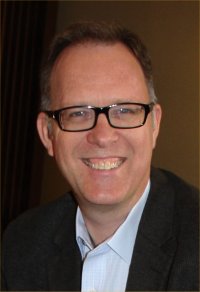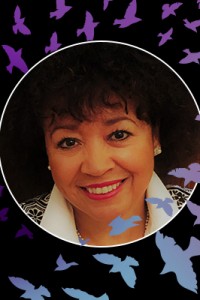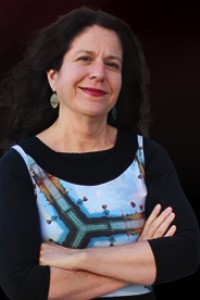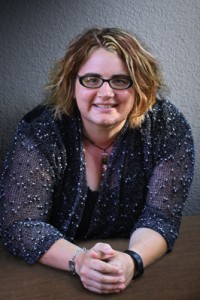Garth Nix: Back in the Old Kingdom

Garth Nix was born July 19, 1963 in Melbourne Australia and grew up in Canberra. He joined the Army reserve at 17 and served as a part-time soldier for five years. At 19 he began writing, and sold first story ‘‘Sam, Cars and the Cuckoo’’ (1983) within the year. He attended the Canberra College of Advanced Education (now the University of Canberra) and received a BA in professional writing in 1986.
His first novel, children’s dark fantasy The Ragwitch, appeared in Australia in 1990 and the US in 1995. Second novel Sabriel (1995 Australia, 1996 US) won Aurealis Awards in both the Best Fantasy Novel and Best YA Novel categories, and began the Old Kingdom series. Lirael (2001), set in the world of Sabriel though not a direct sequel, won Australia’s 2002 Adelaide Festival Award for Children’s Literature along with a Ditmar Award. Sequel Abhorsen appeared in 2003, and a companion novella featured in the collection Across the Wall: A Tale of the Abhorsen and Other Stories in 2005. He returned to the Old Kingdom in Clariel: The Lost Abhorsen (2014).
His third and fourth books were SF: Shade’s Children (1997) and YA novelization The X-Files: The Calusari (1997). Scholastic and LucasFilm in the US asked him to create the overall story and characters for a children’s fantasy series with possible franchise to other writers, which became six-book series The Seventh Tower (2000-01), comprised of The Fall, Castle, Aenir, Above the Veil, Into Battle, and The Violet Keystone.
The Keys to the Kingdom series includes Mister Monday (2003), Grim Tuesday (2004), Drowned Wednesday (2005), Sir Thursday (2006), Lady Friday (2007), Superior Saturday (2008) and Lord Sunday (2010).
YA SF novel A Confusion of Princes (2009) formed the basis for online roleplaying game Imperial Galaxy, co-created by Nix and playable online at .
With Sean Williams he writes the Troubletwisters YA fantasy series, with four books so far: Troubletwisters (2011), The Monster (2012), The Mystery (2013; as The Mystery of the Golden Card in Australia), and The Missing (2014; as Missing, Presumed Evil in Australia). They also co-wrote the third book in the Spirit Animals middle grade fantasy series, Blood Ties (2014).
Nix is an accomplished short fiction writer, writing mostly stories for children and young adults. Notable works
include ‘‘Lightning Bringer’’ (2001), ‘‘Hope Chest’’ (2003), and Aurealis winners ‘‘Nicholas Sayre and the Creature in the Case’’ (2005), ‘‘Sir Hereward and Mister Fitz Go to War Again’’ (2007), and ‘‘Shay Corsham Worsted’’ (2014). Some of his short work for younger children is collected in One Beastly Beast (2007), and three of his Sir Hereward and Mister Fitz stories were gathered in Sir Hereward and Mister Fitz: Three Adventures (2013). His latest collection of stories is To Hold the Bridge, forthcoming in June 2015.
Nix worked in bookselling and academic publishing from 1987-1990, did a stint editing for HarperCollins Australia (1990-93); was a PR and marketing consultant to technology companies (19
94-97); and was a part-time literary agent from 1999 to 2002, when he was forced to give up other pursuits to meet his various literary commitments. He is still a shareholder at Curtis Brown Australia. In 2014 he won the Peter McNamara Achievement Award for his contributions to the Australian SF field.
Nix lives in Sydney with his wife, Anna McFarlane, one of the children’s publishers at Allen & Unwin (married 2000) and their sons Thomas Nix, born 2002, and Edward Nix, born 2004.
‘‘Clariel has been in the works since 1998, just building up in the queue of books to be written. When I was writing Lirael, I made a note about one of the characters and that was the beginning of Clariel. It’s been lurking there, just waiting. I only work things out as I need them, typically. People often ask me, ‘So you left it for years.’ No, it’s always been in my head. But I did have to go back and reread the earlier books. I don’t like going back and rereading my work, but you have to sometimes. In the Keys to the Kingdom books I had to consistently reread the old ones as I was writing the new ones and I had to do that for Clariel as well. I had forgotten useful details but also discovered things I’d set up, so that was quite good. I laid the groundwork without being aware I was laying the groundwork, years ago. Also because I’d written the books long enough ago, I could reread them without feeling I wanted to rewrite them – I’m never going to do that. I don’t believe that’s a good idea. Most of the time I was reading the old books and thinking, ‘Wow, I forgot I put that in there, it’s absolutely ideal.’ Even when I’m in the middle of writing a book I often find I’ll get to a point where I think, ‘I’ve got to set this up’ only to realize, ‘Oh, I have already set it up.’ I’m not saying my subconscious writes my books, though that would be cool – I could just go away, and have a Jekyll and Hyde thing. My alter ego who writes. That would be creepy, actually. Auto-written in the night by my other self. Why am I so tired? That’s a horror story in itself. That’s a Stephen King story. (He’s probably already written it, and I just haven’t read it.) Generally speaking, it’s interesting how your subconscious, if you’re working on something, does work out a lot of the things you need, and you put them in without knowing you’ll need them later on.”
…
‘‘We’ve come close to a Sabriel film a few times. It’s like a lot of things in the movie business, where it’s potentially exciting, things almost happen, and then fall apart. It came incredibly close twice, and the second time, the contracts were all done, the lawyers had been through everything, and money had been spent. There were a lot of different parties involved. Everything was ready to go, massive paperwork waiting to be signed, when a question was raised about some of the funding for the film. Some of it was going to come from a tax break in Australia, and one of the producers had been one of the people who’d helped design that tax break, and he said we’d get it for sure, but another lawyer said, ‘I don’t think you’ll get it.’ It was like a house of cards. The card representing 20 million dollars got taken out, and the whole thing collapsed, just as we were ready to sign.
…
‘‘We did have at least one meeting with a totally ludicrous question: ‘Could we set Sabriel in contemporary America and could she be a kindergarten teacher?’ Why not just write your own story, why do you want to talk about buying my book? That’s typical of Hollywood as well. Everyone has stories about that, where they buy books for what’s good in them and then remove all of that, and you don’t even recognize the film.
…
“The reality is mostly films or TV don’t happen, and as an author it’s good not to be too invested emotionally or economically. The only thing you can control is your fiction, so focus on that. Write the next book, and write the next story.”
…
“I think the reason New Adult exists is because there’s so much YA, publishers need some other means of separation. People reading it are probably mostly 18 to 40, though like anything, it’s difficult to generalise. The publishers are just trying to create a niche for particular kinds of books. Categories are always about how you sell the books. It’s not really about what’s in the books, or who they’re for. Like the age-band thing in the UK. They wanted to have an age range displayed on every children’s book. Many people were against that, and rightly so, because children will look at that and think, ‘This is 9-12, and I’m 13, so I shouldn’t read it.’ Or, ‘I’ve got to stop reading this thing that I love because it says on the spine it’s not for me.’ Adults and parents and gatekeepers would say, ‘I can’t buy this book because it’s only for 9-12 year olds.’ It’s very prescriptive, and they wanted it on every book. People are influenced by categories. The whole young adult categorization exists, to a degree, because the core demographic for YA seems to be roughly 16-35, and those people would not go into a children’s section to buy books. The publishers had to separate them out to make it easy for adults, so they wouldn’t feel peculiar. I’ll happily go into a children’s aisle to buy books – it never bothered me. But I know many people, particularly those who don’t have children themselves, for whom going into a children’s section is anathema, like they don’t belong there. That’s still a problem.”
…
‘‘I rarely teach workshops but I do every now and then. I think a lot of writing fiction is instinct, which you can’t teach. I agree with whoever said, ‘You can’t be taught how to write, but you can learn.’ When I do teach a workshop, a lot of it is trying to help people ask the questions that will allow them to work out how they should write, which could well be not like how anybody else goes about it. I also believe that writing is a craft and an art. You can teach the craft, and you can get better at it. The art side of it is the more amorphous, difficult thing that involves natural talent and inborn imagination. But if you can make yourself better at the craft, you are increasing the chances that it will somehow mesh with your imagination, your talent side and improve the art aspect as well. If you haven’t got much of the talent, but you become a good craftsperson, that might be enough. It’s like making a chair. You can learn to make a chair, and with practice, perhaps even a really lovely chair. But without the natural talent, you won’t be able to make a beautiful chair that last hundreds of years and people instinctively respond to as a work of art.
…
‘‘My favorite book is always the one I haven’t written yet. Because they’re always much more amazing in my head. Which is true of all writers, I think. The unwritten books really are much more incredible. I’m proud of my books, you know, but they never capture what’s in my head completely. I always think, maybe next time I’ll get closer. Of course, you never do, but it keeps you going.’’





